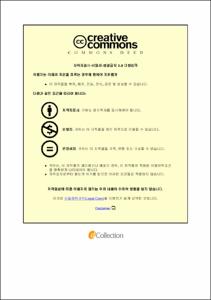고속 대량 스크리닝을 통한 NK 세포매개 췌장암 치료제 개발에 관한 연구
- Abstract
- Introduction
Pancreatic cancer has a low survival rate and poor treatment effects, highlighting the need for new therapeutic approaches. This study aimed to investigate the effect of a single compound on the activity of NK cells and identify potential candidates for pancreatic cancer treatment.
Methods
Through high-throughput screening (HTS), we identified four single compounds that activate NK cells. Further analysis revealed that Rosiglitazone showed the highest expression of NCRs, which is indicative of increased NK-92MI activity. WST-1 assay was performed to confirm the toxicity of Rosiglitazone to pancreatic cancer cells and NK cells, and western blot was performed to confirm the expression of proteins related to apoptosis and cell proliferation. Using the in vivo imaging system, the inhibition of pancreas cancer cell proliferation was visually confirmed by Rosiglitazone and NK cell combination treatment.
Results
Our results showed that Rosiglitazone had the most potent effect on NK cell activation, as evidenced by increased expression of NKp30, NKp44, and NKp46. Rosiglitazone significantly inhibited the proliferation of pancreatic cancer cells (PANC-1 and BxPC-3) in a dose-dependent manner, while it did not affect the viability of NK-92MI cells. Rosiglitazone treatment also increased the expression of proteins related to activation in NK-92MI cells in a dose-dependent manner. Co-administration of Rosiglitazone and NK-92MI cells significantly inhibited the proliferation of both PANC-1 and BxPC-3 cells and induced apoptosis more efficiently than Rosiglitazone or NK-92MI cells alone. This was accompanied by increased expression of proteins related to cell death. Using an in vivo imaging system (IVIS), we further confirmed that the combination of Rosiglitazone and NK-92MI cells effectively inhibited the growth of BxPC-3 LUC cells in vitro. Finally, we found that Rosiglitazone increased TNF-α and IFN-γ-expression in NK-92MI cells, suggesting a possible mechanism underlying its effect on NK cell activation.
Conclusion
Our study identified Rosiglitazone as a potent product for activating NK cells and inhibiting the proliferation of pancreatic cancer cells. These findings suggest a potential pancreatic cancer treatment strategy involving enhancing the immune system.
|배경 및 목적
췌장암은 생존율이 낮고 현재 알려진 치료의 효과가 나쁘기 때문에 새로운 치료방법에 대한 접근 필요한 상태이다. 본 연구의 목적은 단일성분 물질이 NK 세포의 활성에 미치는 영향을 조사하고 췌장암 치료의 잠재적 후보를 선별하는 것이다.
방법
고속 스크리닝을 통해 NK92-MI세포에 독성이 없는 4가지 후보 물질을 선별하였다. 추가 실험을 통해 Rosiglitazone에서 증강된 NK-92MI 활동을 나타내는 NCR의 가장 높은 발현을 보여주어 최종 물질로 선택하였다. WST-1 분석을 통해 Rosiglitazone의 췌장암 세포 및 NK세포에 대한 독성을 확인하고, apoptosis 및 세포 증식과 관련된 단백질 발현을 확인하기 위해 western blot을 수행하였다. in vivo imaging system을 이용하여 Rosiglitazone과 NK세포의 병용 요법에 의한 췌장암 세포 증식 억제를 시각적으로 확인하였다.
결과
본 연구 결과는 Rosiglitazone이 NK 세포의 활성화에 가장 강한 영향을 미친다는 것을 보여주었다. 이는 NKp30, NKp44 및 NKp46의 발현 증가로 입증할 수 있었다. Rosiglitazone은 췌장암 세포(PANC-1 및 BxPC-3)의 증식을 억제하는 반면, NK-92MI 세포의 생존율에는 영향을 미치지 않았다. 또한 Rosiglitazone은 NK-92MI 세포에서 활성화와 관련된 단백질의 발현을 증가시켰다. Rosiglitazone과 NK-92MI 세포의 동반 투여는 PANC-1 및 BxPC-3 세포의 증식을 유의하게 억제하며, Rosiglitazone 또는 NK-92MI 세포 단독 치료보다 더 효과적으로 세포 자살을 유도했다. 이와 더불어 세포사와 관련된 단백질의 발현 증가 또한 함께 관찰되었다. 이를 시각적으로 확인 하기위해 in vivo imaging system(IVIS)을 사용하였는데, Rosiglitazone과 NK-92MI 세포의 결합 치료가 BxPC-3 LUC 세포의 성장을 효과적으로 억제한다는 것을 확인할 수 있었다. 마지막으로, Rosiglitazone은 NK-92MI 세포에서 TNF-α 및 Granzyme B발현을 증가시켰으며, 이를 통해 NK 세포 활성화의 가능한 기전을 알 수 있었다.
결론
우리의 연구는 대량 스크리닝 및 실험을 통해 Rosiglitazone이 NK 세포를 활성화시키고 췌장암 세포의 증식을 억제하는 강력한 단일성분임을 밝혀냈다. 이러한 결과는 단일 성분 물질을 사용하여 면역 체계를 강화시키는 것이 췌장암 치료에 유망한 전략이 될 수 있음을 시사한다.
- Issued Date
- 2023
- Awarded Date
- 2023-08
- Type
- Dissertation
- Keyword
- Pancreas cancer; NK cell; Rosiglitazone; HTS
- Alternative Author(s)
- Ma Chung Hyeun
- Affiliation
- 울산대학교
- Department
- 일반대학원 의학과의학전공
- Advisor
- 김송철
- Degree
- Doctor
- Publisher
- 울산대학교 일반대학원 의학과의학전공
- Language
- eng
- Rights
- 울산대학교 논문은 저작권에 의해 보호 받습니다.
- Appears in Collections:
- Medicine > 2. Theses (Ph.D)
- 파일 목록
-
-
Download
 200000688622.pdf
기타 데이터 / 1.72 MB / Adobe PDF
200000688622.pdf
기타 데이터 / 1.72 MB / Adobe PDF
-
Items in Repository are protected by copyright, with all rights reserved, unless otherwise indicated.